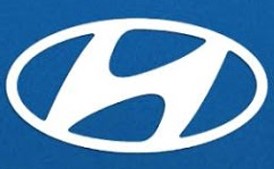By Michael Martinez, BBC –
Citing front-loaded product launch costs and engineering expenses, Ford Motor Company said that much of the year-over-year decline it expects from its 2017 financial performance will occur in the first quarter.
Ford said it expects a full-year pretax profit of $9 billion, down from $10.4 billion it made in 2016 as it invests in autonomous cars and new mobility services. The automaker expects earnings per share of between 30 cents to 35 cents in the first quarter, down from the same period last year and lower than analyst expectations.
“The first quarter is where the year-over-year declines come,” CFO Bob Shanks told analysts. The company initially filed its disclosure with the Securities and Exchange Commission.
Shanks said Ford will be dealing with increased commodity costs and a warranty expense that he declined to give details about. He also said the automaker will be affected by vehicle volumes as demand for new cars and light trucks cools.
He said the company’s U.S. vehicle stocks (79 days supply in February) are in good shape, but “don’t be surprised” if Ford temporarily shuts down lines at U.S. assembly plants in the near future to cut back production.
Much of the product-launch costs Shanks described are related to the Ford Super Duty and Lincoln Continental, which debuted near the end of last year.
Ford maintained its pretax profit forecast it originally issued in January for its Ford Credit arm of about $1.5 billion thanks to lower U.S. auction values. Ford Credit posted a $1.9 billion pretax profit in 2016, down $207 million from 2015.
Ford shares were down less than 1 percent to $11.69 a share as of early Thursday afternoon.
2018 improvement
Ford still expects that its 2018 financials will rise, and be higher than the $10.4 billion it earned in 2016. It expects that rise will come thanks to increases in its core business, Shanks said.
“We think we can do more with trucks, we think we can do more with utility vehicles, we can do more with performance and we’ve got plans in place to do that,” he said.
In a Thursday client note, Buckingham Research Group analyst Joseph Amaturo said “we believe Ford’s announcement today is the initial confirmation of our investment thesis that pricing is deteriorating in North America and in select international markets, particularly China.”
Mobility investments
The 2017 profit dip comes as the automaker invests heavily in what it calls “emerging opportunities” as it develops autonomous vehicles and expands into mobility services such as ride sharing and bicycle sharing. Last month, Ford announced it would invest $1 billion over the next five years in artificial intelligence startup Argo AI to help build the brains of its robot cars.
Ford last year also purchased Silicon Valley-based shuttle service Chariot. Ford recently said Chariot would expand to eight cities by the end of 2017, including a city outside the U.S.
Last March, the automaker created a Smart Mobility subsidiary to invest in emerging mobility opportunities as it targets more services outside traditional car and truck ownership.
Executives have said they expect profit margins of up to 20 percent on the new services.
‘Nobody knows anything’
Shanks on Thursday said Ford is well-positioned on some of President Donald Trump’s pending policy decisions, although “in terms of policy, nobody knows anything.”
He said the automaker would be closely watching the vote on the GOP’s proposed healthcare bill, since the outcome could have an impact on what issues the president tackles next.
Shanks said that any import tariff on Mexico-built vehicles would be a “drag on our business,” but noted that Ford is in better shape than some of its competitors, since its profit-generating trucks and SUVs are all built in the U.S.
Shanks praised Trump’s decision last week to re-open a midterm review of vehicle emissions standards, but noted that Ford isn’t asking for a rollback.






